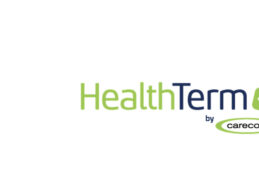Hospitals are increasingly motivated to drive digital transformation in order to improve patient outcomes, reduce costs, meet regulatory requirements and stay competitive. Additionally, digital transformation can support medical research and drive innovation in healthcare, as well as generate new revenue streams. An increasingly important tool as hospitals undergo these transformations is federated learning, a technology that we will expand on later. Federated learning is a machine learning
Read More
Data Governance
Enabling a Better Future for All by Embracing Healthcare Interoperability
The Centers for Medicare and Medicaid Services (CMS) has laid the critical groundwork to create a connected healthcare system in which patients, providers, and payers can easily exchange information. This is thanks in part to the release of the Interoperability and Patient Access Final Rule. With new policies now in place, CMS aims to generate better health outcomes through improved interoperability and better access to health information for all stakeholders.
CMS has also identified a new
Read More
Modernizing Data Access: 3 Tips for Securing Patient Data in the Cloud
There is a tremendous amount of data within the healthcare and life sciences industries. According to RBC Capital Markets, the healthcare sector accounts for 30% of the world’s data and is forecasted to grow by a compound annual growth rate of 36% in the next two and half years.
The benefit is that healthcare professionals, organizations, and analysts can use this data to improve the quality, quantity, and accessibility of healthcare. But it also carries great risk. More organizations
Read More
The Gains and Pains of Using AI in the Pharmaceutical Industry
The costs for drug discovery and development are skyrocketing, but AI (artificial intelligence) is introducing new efficiencies to help find effective treatments faster.
A study in 2020 concluded that the estimated median capitalized research and development cost per product was $985 million. Contributing factors to this included larger trial sizes, the need to assess health technology, the requirement to provide data on comparative drugs’ effectiveness, and most
Read More
Biometrics as the Next Frontier of Authentication in Healthcare
As a result of the COVID-19 pandemic, more healthcare consumers than ever before have begun to engage digitally with their healthcare providers rather than seek in-person treatment and care options. A survey recently released by software company Redpoint Global found that 65 percent of consumers reported using telehealth during the pandemic, with 34 percent of those respondents indicating they will continue to do so as the pandemic winds down.
In this context, it’s no surprise that
Read More
Harnessing Healthcare Data: How the Right Low-Code Solution Empowers Clinicians & Improves Patient Experience
The healthcare industry has been slowly adopting new technology solutions to improve efficiency and patient care, but it’s still largely known for paper-based processes, and for having massive amounts of data1. To make matters worse, it’s estimated that 80% of the data in the healthcare industry is unstructured, in the form of discharge summaries, medical images, and clinical notes.2
Even though the industry has started to adopt technology tools to get better insights and
Read More
Lyniate Acquires CareCom to Expand Semantic Interop Capabilities
What You Should Know:
- Lyniate, a global leader in healthcare data interoperability acquires CareCom, a provider of semantic interoperability. This acquisition builds on Lyniate’s recent merger with NextGate, a longtime leader in patient identity management.
- The combined organization will better support healthcare organizations in converting unstructured content into standardized data to help them assemble and manage more complete and accurate patient
Read More
Traditional RESTful APIs Will Not Solve Healthcare’s Biggest Interoperability Problems
Interoperability is a big discussion in health care, with
new regulations requiring interoperability for patient data. Most approaches
follow the typical RESTful API approach that has become the standard method for
data exchange. Yet Health Level Seven (HL7), with its new Fast Healthcare Interoperability
Resources (FHIR) standard for the electronic transfer of health data, is
leading to a rash of implementations that, to date, are not solving core interoperability
issues.
Data is still
Read More
Meaningful Use of Genomics Requires Informatics Beyond EMRs
Electronic medical records (EMRs) are widely expected to serve as a cornerstone technology that drives the delivery of modern patient care.
But can the EMR alone support all the informatics capabilities required by an ever-evolving healthcare industry? The rapid growth of precision medicine, particularly the use of genetic and genomic information during clinical decision making, is a compelling example that functionality beyond the EMR is required. Not only does genomic data represent a
Read More
30 Executives Share Top Healthcare Predictions & Trends to Watch in 2021
As we close out the year, we asked several healthcare executives to share their predictions and trends for 2021.
Kimberly Powell, Vice President & General Manager, NVIDIA Healthcare
Federated Learning: The clinical community will increase their use of federated learning approaches to build robust AI models across various institutions, geographies, patient demographics, and medical scanners. The sensitivity and selectivity of these models are outperforming AI models
Read More










